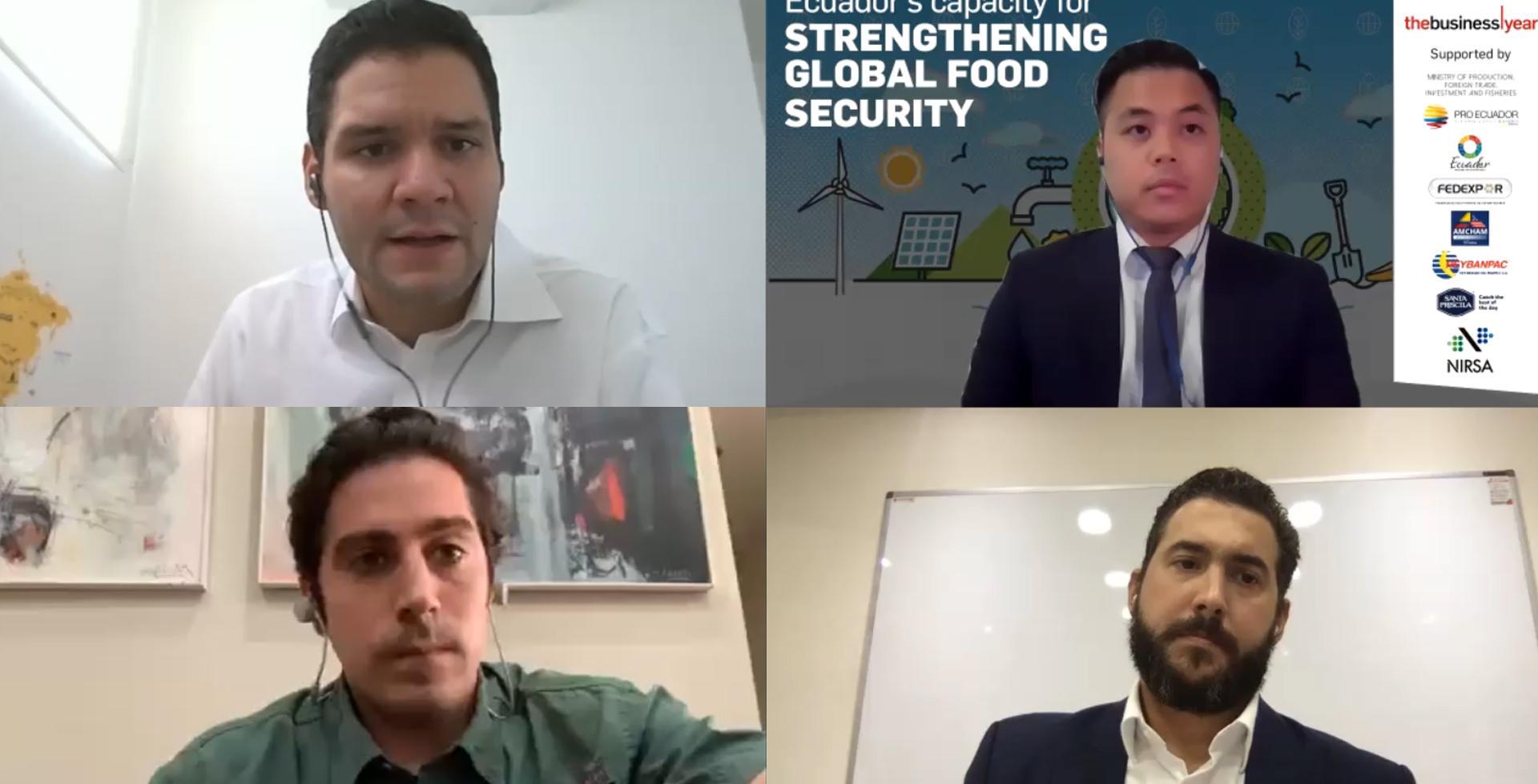ECUADORIAN BANANA & GLOBAL FOOD SECURITY
2020-06-08On June 2nd, the virtual roundtable "Ecuador's Capacity to Strengthen Global Food Security", organized by The Business Year was held, which included the participation of entrepreneurs from the country's three main export industries: banana, shrimp and tuna. Vicente A. Wong, Reybanpac's Commercial Manager, was one of the members of the panel and spoke about the role of the banana sector on the subject. Health and safety standards, the effects of the pandemic in the industry, its approach towards greater sustainability, and Ecuador’s competitive advantages were the topics addressed at the event.
During his intervention, Wong highlighted that Ecuador was the first of two countries, and the only one in the region, to develop an Occupational Safety and Health Manual specifically for the banana industry as a collaborative effort between FAO, the Ministry of Labor and the Ministry of Agriculture. Through this tool, the sector, which is made up of around 7.000 producers, has been working to control and raise the level of safety standards in its production.
In the context of the COVID19 pandemic, the priority for Reybanpac and other companies in the sector has been to ensure the health of workers. “Our first priority was to protect our workers’ health. The second is the responsibility of maintaining the jobs, for which we had to find the correct measures to operate and keep our business flowing." For Wong, the big lesson that emerges from this experience is the importance of working on broader contingency plans that integrate suppliers and other actors in the value chain. “At this time we strive to have strategic alliances with specific actors that are very relevant to fulfill our operation, with our exports and with our clients.”
Ecuador is the world's largest banana exporter with a 30% share. Due to its location, the country has a stable climate that favors a constant production throughout the year and its production curve matches with the peak of demand in the northern hemisphere, which represents an advantage for the country. At the same time, logistics frequency is readily available to export to the 5 continents. The diversification of its markets is an advantage for the industry and marks the growth potential for it. “We have very strong markets in Russia, the Middle East, Mediterranean countries, Asia, as well as Europe and the United States. This diversification brings stability to sustain the industry. At the same time, there is a lot of potential to continue increasing the penetration of our product in many markets.” As an example, he cited the case of Turkey whose per capita consumption of bananas ranges from 4 to 5kg per year, in contrast to 17kg in a mature market such as Germany. The ability of Ecuadorian bananas to reach wide destinations is due to the long shelf life of the fruit in its green and yellow stages, which allows it to withstand transits of 35 to 40 days, something that the other producing countries can’t handle.
In terms of sustainability encompassing the social, environmental and productive aspects, Ecuador has put significant efforts into it. A milestone was the incorporation in its legislation of the mandatory payment of a living wage for workers. In the last 10 years, the country has been consistently reducing the gap between the minimum wage and the living wage, to the point that in 2020 the basic salary exceeded the calculation established for the living wage. "The living wage is an issue that has been gaining interest in the agricultural sector globally in recent years, and we are proud that Ecuador is one step ahead."
In the same way, to meet sustainability objectives, the Ecuadorian Government took on the challenge of promoting the standardization of processes in the sector by implementing a certification of good agricultural practices. For its part, Reybanpac has invested in technology and is constantly working to develop precision agriculture in its plantations to achieve a greater optimization of resources that maximizes productivity, while reducing the consumption of water and chemical products.
“We have traveled an important path as an agro-industry, but there is still a lot of room to grow and improve. As a company and country we are completely committed and we have a clear horizon to maintain a Premium & Sustainable product, but this will also be possible to the extent that all the actors in the chain work together so that the industry can be in fact sustainable,” concluded Vicente A. Wong.
